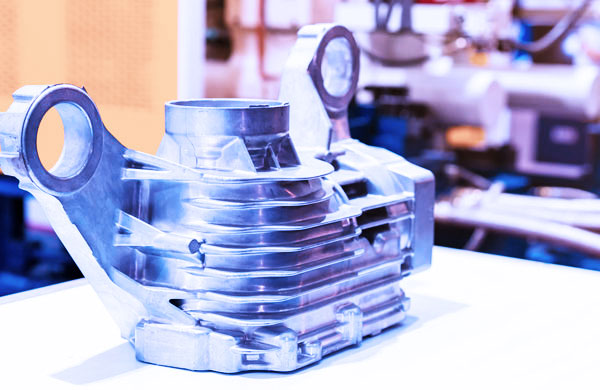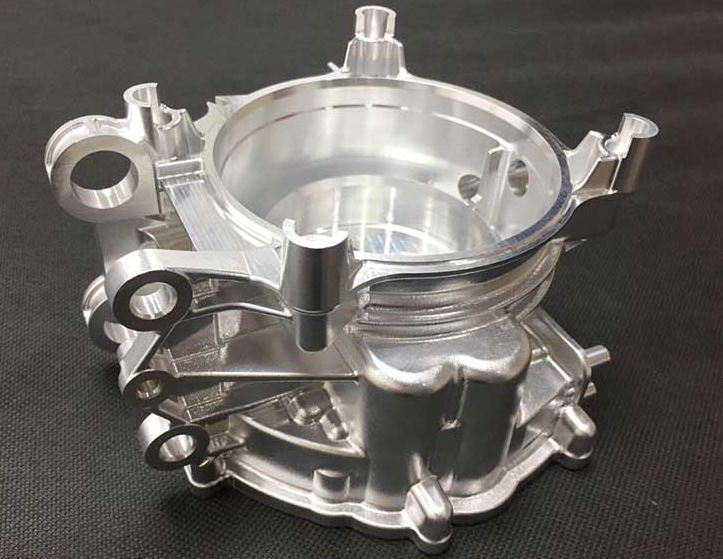The Single Strategy To Use For Stahl Specialty Company
Table of ContentsFascination About Stahl Specialty CompanyStahl Specialty Company Can Be Fun For AnyoneExcitement About Stahl Specialty CompanyLittle Known Facts About Stahl Specialty Company.Unknown Facts About Stahl Specialty CompanyThe Ultimate Guide To Stahl Specialty Company

If you're creating a steel item, you have actually likely thought about using light weight aluminum as the base product. It has a high strength-to-weight proportion, great corrosion resistance, excellent formability, and aesthetic allure. These factors have led to its increased popularity in the last few years. Pure aluminum has limited applications, so it is commonly combined with various other elements, such as silicon, magnesium, and manganese to form alloys.
(AA), based in North America, has actually created specs that manage light weight aluminum alloys' structure, homes, and classification. There are two types of light weight aluminum alloys functioned and cast.
Stahl Specialty Company - Truths
Cast aluminum alloys are made by thawing pure aluminum and incorporating it with other steels while in fluid type. The mix is poured into a sand, pass away, or financial investment mold. After solidification, the metal is eliminated from its mold. At this stage, it remains in either its final type or as a billet or ingot for additional handling.

160.0 represents a cast with a minimum of 99.60% light weight aluminum. The 4th digit, which comes after the decimal point, defines if the alloy is a casting (xxx. 0) or an ingot (xxx. 1). Wrought light weight aluminum alloys additionally start by combining liquified light weight aluminum with other metals. In comparison to cast alloys, however, they are created into their final shape with processes such as extrusion, rolling, and bending after the steel has solidified right into billets or ingots.
There are numerous minor differences between wrought and cast light weight aluminum alloys, such as that cast alloys can contain more significant quantities of other steels than functioned alloys. The most notable distinction in between these alloys is the construction procedure via which they will certainly go to provide the final item. Apart from some surface treatments, cast alloys will certainly leave their mold in practically the precise strong type desired, whereas wrought alloys will go through several modifications while in their strong state.
If you believe that a functioned alloy might be the most effective for your job, take a look at several of our write-ups that explain more concerning particular wrought alloys, such as Alloy 6061 and Alloy 6063. On the various other hand, if you think a cast alloy would certainly be better for you, you can find out more regarding some actors alloys in our Alloy 380 and Alloy 383 articles (coming quickly).
The Stahl Specialty Company PDFs
When selecting a light weight aluminum foundry for your manufacturing needs, it's vital to examine several elements. Among one of the most vital facets to consider is the experience and competence of the factory. Aluminum Casting. Selecting a factory who has the appropriate knowledge of the aluminum spreading procedure, and the profile to show for it, assists to have an effective end result for your project
Having the experience and industry knowledge to engineer your spreadings for optimum manufacturing and top quality outcomes will improve the job. Producing light weight aluminum spreading requires a complex set of processes to accomplish the ideal outcomes. When deciding on a new aluminum shop to companion with, guarantee they have extensive industry experience and are knowledgeable about all elements of the aluminum casting process: design, manufacturing, product evaluation, and product screening.
The foundry needs to also have a tested track document of providing exceptional products that satisfy or exceed customer assumptions. Quality assurance must also go to the top of your listing when selecting an aluminum foundry. By collaborating with a certified shop who follows the criteria for quality control, you can safeguard the stability of your item and ensure it meets your requirements.
By picking a business who uses solutions that meet or surpass your product requirements, you can be certain that your job will be finished with miraculous precision and performance. Specific light weight aluminum factories focus on specific types of making procedures or casting methods. Various parts call for click here for more various production methods to cast aluminum, such as sand spreading or pass away casting.
How Stahl Specialty Company can Save You Time, Stress, and Money.
Die casting is the name provided to the procedure of developing intricate metal elements with use mold and mildews of the component, also understood as passes away. The process utilizes non-ferrous steels which do not have iron, such as light weight aluminum, zinc and magnesium, due to the desirable residential or commercial properties of the steels such as low weight, greater conductivity, non-magnetic conductivity and resistance to rust.
Die spreading production is quickly, making high production levels of parts very easy. It generates more parts than any type of other procedure, with a high level of accuracy and repeatability. To read more regarding die casting and die casting products utilized in the process, continued reading. There are three sub-processes that drop under the group of die spreading: gravity pass away spreading (or permanent mold and mildew spreading), low-pressure die spreading and high-pressure die casting.
After the pureness of the alloy is checked, dies are developed. To prepare the dies for casting, it is vital that the dies are tidy, so that no residue from previous manufacturings stay.
Little Known Facts About Stahl Specialty Company.
The pure metal, likewise referred to as ingot, is added to the furnace and maintained the molten temperature of the metal, which is after that moved to the shot chamber and infused into the die. The stress is then preserved as the steel solidifies. Once the metal solidifies, the cooling procedure begins.
(https://www.topsitessearch.com/stahlspecialty.com/)
The thicker the wall surface of the part, the longer the cooling time due to the amount of indoor steel that additionally requires to cool. After the component is fully cooled down, the die halves open and an ejection system presses the component out. Complying with the ejection, the die is closed for the next shot cycle.
The flash is the additional material that is cast during the procedure. This need to be trimmed off using a trim tool to leave simply the primary element. Deburring removes the smaller sized items, called burrs, after the trimming procedure. The part is polished, or burnished, to give it a smooth coating.
The Buzz on Stahl Specialty Company

Zinc is one of the most used alloys for die spreading due to its reduced cost of raw materials. Its corrosion resistance additionally enables the parts to be long enduring, and it is one of the much more castable alloys due to its reduced melting point.
As mentioned, this alloy is just one of one of the most commonly utilized, yet makes will, at times, pick light weight aluminum over zinc because of light weight aluminum's manufacturing benefits. Aluminum is very cost-effective and one of the extra functional alloys. Light weight aluminum is made use of for a variety of various products and industries anything from home window frameworks to aerospace products.